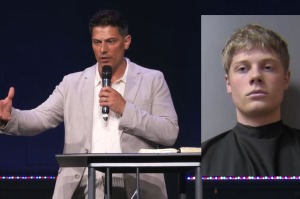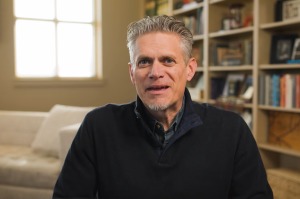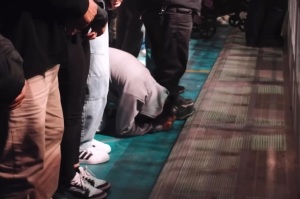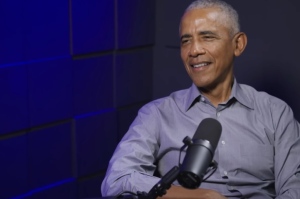Pastor’s fatal heart attack at 32 points to chronic disease crisis among young black males
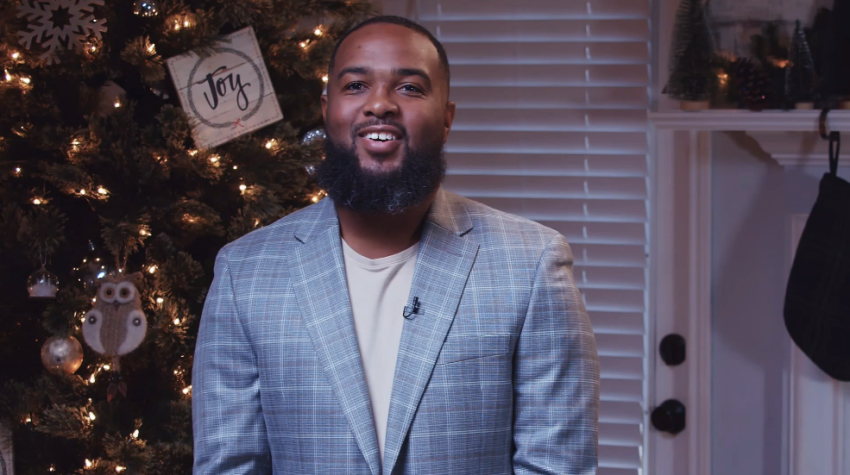
Corey Hines wasn’t ready to die.
On Saturday, Jan. 2 though, the 32-year-old Texas preacher, who survived two brutal heart attacks just months ago amid the coronavirus pandemic, died gasping for air in the garage of his home.
“‘I’m about to pass out,’” his sister, Chelsye Hines, said were his last words.
His sister-in-law had desperately tried to get him his emergency heart medication but Pastor Hines slipped away into the unknown before she was able to get it to him.
“That was it. He pretty much fainted,” Chelsye said. Some 30 minutes after an ambulance arrived, her brother was pronounced dead.
In hindsight, it seems all that day Pastor Hines had been inching toward death.
Chelsye recalled how he wasn’t feeling well so “he was just kind of taking it easy.”
He traveled with his wife out of town to see his grandfather-in-law, whom they hadn’t seen for a while. On their way back, he got himself a fresh haircut. He needed to look good for church the next morning.
“While he was there getting his haircut, I guess the pain got worse,” Chelsye said.
Pastor Hines didn’t have his emergency heart medication with him at the barbershop so a family member had to rush it to him.
“He took it and he was OK,” explained Chelsye.
Later, when he got home, Pastor Hines would try to feel better by relaxing with his family.
“They were just having family time and just having fun. He had the kids. They had music, and just talking, having fun. Then he said, ‘I can’t breathe. I’m having trouble breathing,’” Chelsye said.
Pastor Hines’ emergency heart medication was still in his car from the barbershop episode. His sister-in-law ran to get it again. Pastor Hines followed behind her to save time.
“As soon as she found it, she was walking up to him and he said, ‘I’m about to pass out,’” said Chelsye.
Church
On Monday, Jan. 4, Heavenly Gospel Church in Fort Worth, which Pastor Hines had led for the last five years, shared the tragic news on Facebook.
“It is with heavy hearts that we announce the transition of our amazing Senior Pastor Corey Hines. A man of faith, love, joy, leadership and a servant’s heart. Pastor Corey lived his life to love and serve his family, his church and community just like Jesus,” the church said. “Our lives will forever be impacted by his wisdom, generous love, sense of humor, his incomparable commitment, and his unquestionable loyalty to the Kingdom of God, his wife, his family, the community and to Heavenly Gospel Church.”
But Hines wasn’t ready to die.
This year was supposed to be the year of victory for the young preacher.
In his New Year’s Eve address to his congregants shared on Facebook, Pastor Hines talked about the health challenges he had faced as the coronavirus pandemic marched across the country, leaving more than 350,000 dead in its wake.
He presented a picture of hope and gratefulness to be alive in his touching testimony of how he had survived against all odds — thanks to God.
“People were trying to characterize 2020 and all the bad things and throw the whole year away and things like that, but God, He did some amazing things in 2020 through Heavenly Gospel. Not only through Heavenly Gospel, He did some amazing things in my life,” Hines said with an ethereal tone and a glint of hope in his eyes.
“How do I know? Because your pastor is still here! Y’all missed, y’all shout,” he insisted. “I said your pastor is still here. Two heart attacks, two surgeries, one major surgery and triple bypass and I’m still here, healthy. I’m thriving and I feel better than ever.
“And that is a point of praising God, right? Because you could thank God your pastor is still here but in a year where over 350,000 people have passed away due to COVID. If you’re watching this, you’ve got to consider yourself blessed.”
Yes. Hines still alive at 32 on New Year’s Eve was a blessing to his congregation.
What his congregants did not know though, is that the day the church shared his end of year address on Facebook, Hines wasn’t thriving. He had to be rushed to his cardiologist as he fought to hold on to his blessing of life, his sister said.
“He went to the doctor on New Year’s Eve because he was having chest issues again and all they did was change his medicine. I don’t know protocol. I don’t know if they could have just kept him. They could have given him a heart transplant. I don’t know. I just feel like more could have been done,” Chelsye lamented.
While Hines did not die as a direct result of the coronavirus pandemic, Chelsye believes it “most definitely” played a role in his death by complicating his access to healthcare. She also feels like perhaps if doctors had treated his care over the last few months with a bit more urgency, perhaps her brother could have lived longer than 32 years.
An emerging chronic disease crisis
As Chelsea struggles to make sense of her brother’s death, recent but still limited research suggests Hines’ fatal heart attack may be a casualty of an “emerging chronic disease crisis” among young black American males.
In A Closer Look at African American Men and High Blood Pressure Control, a report first published by the Centers for Disease Control and Prevention in 2010, researchers pointed to the burden of heart disease and stroke being the first and third leading causes of death and major causes of disability in the U.S. The report also highlights that black men, like Pastor Hines, disproportionately make up those numbers.
In the report Perspective: Cardiovascular Disease among Young African American Males,published in 2017, Marino Bruce, research associate professor of medicine, health and society at Vanderbilt University, along with his team, explained what they saw as the “emerging chronic disease crisis.”
“Cardiovascular disease is one of the leading causes of premature death among middle-aged African American males, who as youth have a higher prevalence of CVD risk factors leading to accelerated rate of disease progression, and a higher rate of age-related complications than other groups of males,” they wrote. “CVD can have long latency periods with some processes beginning in youth.”
While noting that there was still limited data on the cardiovascular disease risk among black American males, Bruce and his team highlighted hypertension and obesity as prominent features in the health profiles of young black men.
“Hypertension, a known risk factor for CVD, is a salient condition for young African American males as it has been found that college-aged African American males are twice as likely to have hypertension than their white peers,” the researchers said.
Data from the National Health and Nutrition Examination Survey also showed that black American adolescent males comprised the largest segment of extremely obese 12- to 19-year-old males.
“It has been estimated that 75% of the incidence in hypertension can be directly attributed to obesity, and current evidence suggests that the poor health prospects of African American males are likely to worsen in the coming years,” researchers noted.
Although black American adults are 40% more likely to have high blood pressure, they are less likely than their non-Hispanic white counterparts to have their blood pressure under control, according to the CDC. And in 2017, black Americans were 20% more likely to die from heart disease than non-Hispanic whites.
John Henryism and other stressors
In recent preliminary studies, researchers suggested the disparity may have worsened during the pandemic for young black men as well.
One study highlighted in a report by ProPublica using data through July 2020 found that black people ages 35 to 44 were dying at nine times the rate of white people of the same age from the coronavirus. Harvard researcher Tamara Rushovich found that disparity was greatest in black men.
Tracing through the histories of nearly 24 young black men who died from the virus, ProPublica’s research examined a hypothesis known as John Henryism and the catalytic role it could have also played among a host of stressors in their deaths during the pandemic. The theory was also presented as a factor in why black men, in general, have the shortest lifespan of any group of Americans.
John Henry, after whom the hypothesis is named, was reportedly a black American railroad worker from the 1800s who was pitted in a race against a steam-powered drill, which required much less toil and threatened workers’ livelihoods. Henry beat the machine against all odds but would later die from the stress of his effort.
Public health researcher and epidemiologist Sherman James, who is now at Duke University in North Carolina, coined the term John Henryism in the 1970s, which predicts that when people face prolonged adversity — against inequality, financial hardship and racial discrimination — the “high-effort coping” required to thrive will damage their health through stress, leading to a greater likelihood of cardiovascular disease, heart attacks and other problems.
“The John Henry of contemporary social theory is a man striving to get ahead in an unequal society. The effort of confronting that machine, day in and day out, compounded over a lifetime, leads to stress so corrosive that it physically changes bodies, causing Black men to age quicker, become sicker and die younger than nearly any other U.S. demographic group. COVID-19 is a new gear in an old machine,” the Propublica report said.
Researchers at the CDC also acknowledge the theory as a driver in health outcomes for black Americans in A Closer Look at African American Men and High Blood Pressure Control.
“John Henryism is described as behaviors used to deal with psychosocial and environmental stressors that are often exhibited by African Americans determined to succeed in the face of obstacles. Among African American workers of lower socioeconomic status, those with high John Henryism were found to have higher blood pressure levels than those with low John Henryism,” the researchers said.
“Several studies found an association between racism and higher blood pressure levels in African American men. Perceived racism contributes to stress and low self-esteem, which can ultimately negatively affect blood pressure levels,” researchers explained.
Other factors such as socioeconomic status, lack of health insurance and cultural beliefs about hypertension were also found to be factors in health behaviors among black men.
“Health insurance coverage can influence the successful control of hypertension. Based on 2006 Current Population Survey data, African American males were more likely to be uninsured than white males (23% compared to 17%) and less likely to have private insurance coverage (54% compared to 70%),” CDC researchers said. “Successful control of hypertension among African Americans is significantly related to health insurance coverage. Lack of prescription drug coverage and access to hypertensive drugs may play a role in this relationship.”
Awareness, self-care and the black church
Chelsye Hines explained to The Christian Post that her brother had been involved in church leadership since he was about 18 and was groomed to eventually take the helm of the church at the age of 27.
She said when he began experiencing chest pains in the fall of 2019, he chalked it up to stress. She said, “he kind of shook it off” as an accepted way of life.
“He thought it was stress because at the end of the day, he is a pastor,” she explained. “There is stress that comes with leadership, unfortunately, and he just thought, 'Well, maybe I’m stressed and maybe I just need to figure out am I doing too much, am I not?’”
She said her brother tried different things to cope with his discomfort until around February 2020 when he tried to schedule an appointment with a cardiologist. A few weeks later, the coronavirus pandemic hit, making booking time with a heart specialist much more difficult.
“I remember it was hard because the pandemic hit and places were shutting down and they couldn’t see him and they weren’t taking new patients," Chelsye recalled. "I remember they kept pushing it (his appointment) off and he was getting frustrated because he couldn’t get in."
The pastor eventually got to see a cardiologist in May and they began treating him for high cholesterol. His condition was not treated with any urgency, said his sister, until he had his first heart attack in June.
“When he went to the specialist, I just remember them doing a stress test because he had sent me a picture of himself hooked up to all the little things. … That’s when they figured out he had high cholesterol and gave him medicine. But that was just about it. Nothing else came about until he had his first heart attack,” Chelsye added.
By the second week in July, Pastor Hines underwent triple bypass surgery to remove blockages in three of his major arteries. Around the first week in September, Chelsye said her brother would suffer another mild heart attack that forced him back to the ER where doctors “put a stent in one main artery.”
Doctors also gave her brother nitrates and cholesterol medication to manage his condition and sent him home with some advice to change his lifestyle.
“Pretty much he was transitioning to a vegan lifestyle. My mom was making him vegan dishes. He was transitioning to stop eating meat. So it wasn’t like after this he went back to living how he was living. He was really making the changes,” Chelsye said of her brother’s outlook when he died.
Hines was so serious about getting better, she said, he had even started a major health campaign with his congregation that he planned to highlight in 2021.
“My brother, he was telling our vision for the year and he kept saying wholeness and wellness. He really wanted us to focus on not just being spiritually healthy but physically healthy, mentally healthy as well. He started a challenge on his Facebook where he challenged everybody to walk three to five miles a day,” she said.
“He wanted to be more effective, bring more awareness because it is true — black men, especially young black men in church, because things aren’t really taught in the black church. We are taught to trust in the Lord with all our hearts but you know, we don’t take care of it the way that we should sometimes,” she said.
In August 2019, months before the pandemic hit, CP also highlighted research showing that black men who attend church services frequently were found to be nearly twice as likely to be obese than those who never attend services, which has serious implications for heart health.
The study, Investigating Denominational and Church Attendance Differences in Obesity and Diabetes in Black Christian Men and Women, from Duke’s Samuel DuBois Cook Center for Social Equity, suggested that the development of obesity in black men highly engaged in church life could be influenced by their social networks.
Researchers argued that the findings needed to be factored into faith-based health promotions since obesity increases the risk of developing cardiovascular disease and diabetes.
Months after that report, the Rev. Howard-John Wesley, senior pastor of the historic Alfred Street Baptist Church in Alexandria, Virginia, brought some attention to the need for self-care among black pastors when he announced that he needed to take a sabbatical to take care of his spiritual and physical health.
“Y’all, did you realize this is the only body we get? This ain’t a test run. You wear this one out, that’s it. I want to bring my best self to God. You’d be surprised that the majority of black preachers are in horrible physical condition,” Wesley said. “Their A1C is high, their blood pressure is skyrocketing, their cholesterol is bad, they’re on more medications than they should be.”
When asked if her brother would have probably benefited from a little more time off work, Chelsye said more time could have helped in his recovery but noted that he was not asked to do any major church work.
“I think so, but at the same time, all he had to do was speak. I’m his second. I run the operations in everything here at the church. All he had to do is just come and prepare the sermons,” she explained. “Maybe some people do think he should have taken more time off to rest but I just feel like the disease itself was more progressive than they (doctors) thought.”
Remembering
Reacting to the young pastor’s death, The Potter’s House of Fort Worth, which is a campus of T.D. Jakes’ The Potter’s House megachurch, celebrated Hines as a “pastor after God’s heart” as news of his passing spread.
“Our hearts are heavy with the news of the passing of Pastor Corey Hines. When God gives a people pastors after His heart they make an [indelible] impression upon our hearts. Pastor Corey was indeed a pastor after God's heart. May his soul find rest,” the church said in a statement on Twitter.
Others who knew him described him as an inspiring figure who had a passion for helping children.
“I remember the night you called me to see if we could take a 1 year old boy as an emergency. You had exhausted all other options before calling as you knew we had our hands full. Of course I immediately said yes. I remember you p[l]acing this young toddler in my arms at 1:00 am. We have now adopted him and he is thriving,” recalled Angie Henry on the pastor’s condolence page at Mansfield Funeral Home.
“You are responsible for placing so many children into living homes. You worked tirelessly for the foster care system, troubled teens and your own family. You touched so, so, many lives. You will be greatly missed here on Earth but I have no doubt God needed you more. He said ‘well done my faithful servant. Come into Heaven’s gates. Prayers to his wonderful family for peace and understanding,” she said.
Pastor Hines leaves behind his wife, Reneé, and their children, Myriah, Myrisa, and Corey Jr. The family has launched a college fund for his children on GoFundMe.
















